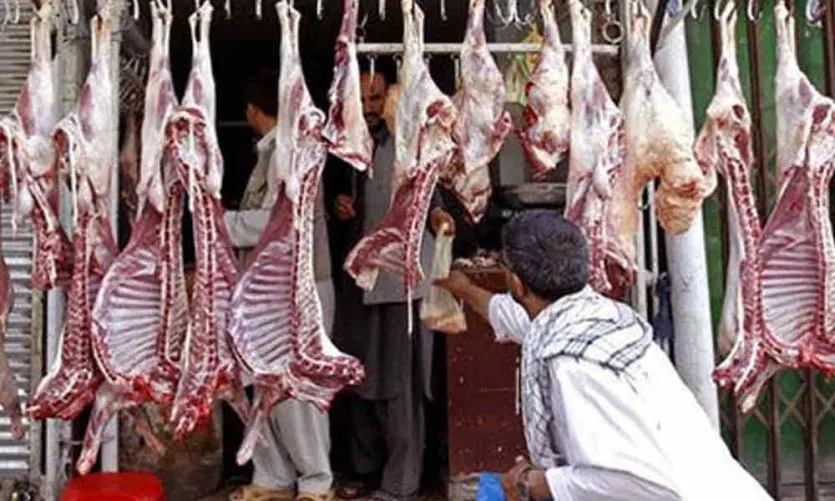Srinagar: Mutton dealers of Kashmir have closed their strike and resumed livestock imports after the Punjab government appointed district-level nodal officers, which is a major complaint to address alleged harassment and arbitrary allegations during transit of livestock trucks, which disrupted meat supply in Kashmir for about a week.
The move, after increasing pressure from livestock traders in Kashmir, who accused the contractors of the Punjab-based cattle fair “forcibly recovery, illegal prevention and overcharging the trucks carrying sheep and goats during their route through the state. In an official communication, the Rural Development and Panchayat Department of Punjab announced the declaration of nodal officers in all districts for the 2025-26 Cattle Fair Sector.
These officials will oversee the movement of livestock, verify the purchase documents, and resolve payment disputes between contractors and traders, especially in border districts that receive high amounts of livestock from other states including Jammu and Kashmir.
Nodal officers, mainly senior executive panchayat officers (SEPOs) and Panchayat Officers (POS) have also been directed to display their contact information on all animal posts for public access and submit a monthly report to the department.
The initiative is in view of a contract of Rs 92.56 crore given to Al Babur Marketing Private Limited for managing the cattle fairs of Punjab in this financial year.
The policy change by Punjab was welcomed by the Kashmiri traders, who stopped the import of cattle in protest.
His week -long strike had increased the lack of mutton during Kashmir’s extreme wedding season, pushed the local butcher to the shore and created widespread public concern.
Mehrajuddin Ghani, general secretary of the Kashmir Mutton Dealers Association, said, “The steps taken by the Punjab government are satisfactory, and we have decided to shut down the strike.” “Appointment of nodal officers will bring some levels of transparency and accountability, which we have been asking for a long time.”
Ghani also accepted the role played by the J&K administration in increasing the crisis.
He said, “The Commissioner Secretary and Director of Food and Supplies Department were in regular contact with us during our stay in Punjab. His support helped to ensure that the matter was taken seriously with the Punjab authorities,” he said.
Traders say that while the appointment of nodal officers is a positive step, long -term solutions will require frequent enforcement, better regulation of private contractors, for management of cattle fairs, and manage institutional security measures to prevent future harassment.
With livestock supply chains, now at speed, mutton shops in the valley are expected to rest in the next two to three days, which gives relief to consumers and to stabilize the price started in local markets.
For now, the crisis may end, but the traders warned that vigilance would be important.
“It should not be determined once,” said another Srinagar-based dealer. “We will monitor how the system works on the ground.” (GK)









